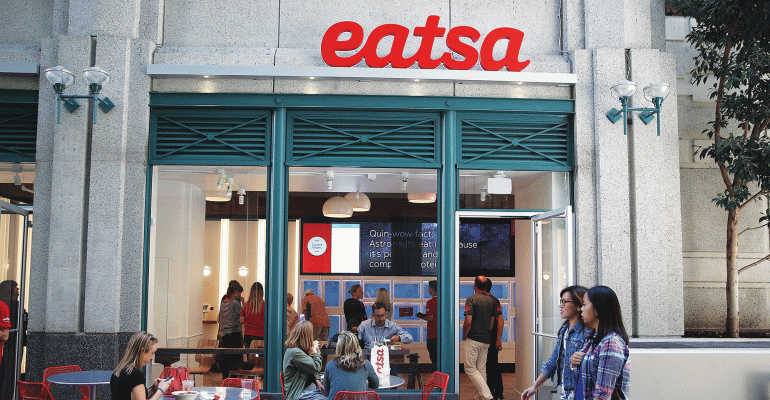The robot takeover of the restaurant industry has been delayed.
Eatsa, the automated chain that emerged in 2015 and quickly expanded last year, has closed all but two of its seven locations, both in its home market of San Francisco. The company plans to work more with other chains to help them use its platform.
“In our eagerness to get the Eatsa experience in front of as many people as possible, we now realize that we expanded our retail footprint too quickly,” the company wrote in a blog post.
“In particular, operating in four different markets has made it difficult to quickly test and iterate our food product — something that is critical in any restaurant business, but is even more important when it comes to introducing a new type of nutritious fare.”
Eatsa, which Nation’s Restaurant News named a Breakout Brand last year, opened its first location in San Francisco in 2015, and quickly opened six more in New York, Washington, D.C., and Berkeley, Calif. The five locations outside San Francisco have closed.
“We hope that with fewer locations, we can experiment and innovate faster, and resume our retail expansion in the future,” the company said.
Eatsa was a revolutionary concept when it debuted, billing itself as a modern-day automat. Customers order customizable quinoa bowls from kiosks. Back-of-house workers prepare the bowls, and they appear behind glass in a cubbyhole with the customer’s name. The restaurant does not have cashiers.
The model can be efficient. The first restaurant averaged 300 to 400 customers an hour during peak times.
Founders Tim Young and Scott Drummond have technology backgrounds and spent 18 months working on software and systems to design the concept.
“We did a massive amount of tests on the food and the experience,” Drummond told Nation’s Restaurant News last year. “We built a mock-up store. We tested all of the software. We tested the technology. We had a fully vetted model in place prior to launch.”
The model generated enormous interest in an industry facing labor shortages and wage increases, due both to government mandates and competition.
Kiosks are rapidly becoming commonplace in many limited-service chains, and other concepts are eager to add them in an effort to keep up.
Eatsa said its launch generated “very strong interest from other restaurants in using our technology to improve their own customer experience and operations.” Now it plans to increase its focus on helping other restaurants use its platform, and said it is “already in discussions with a number of companies to do this.”
Working with established brands “will allow us to get the Eatsa experience people love into more restaurants.”
Contact Jonathan Maze at [email protected]
Follow him on Twitter: @jonathanmaze





